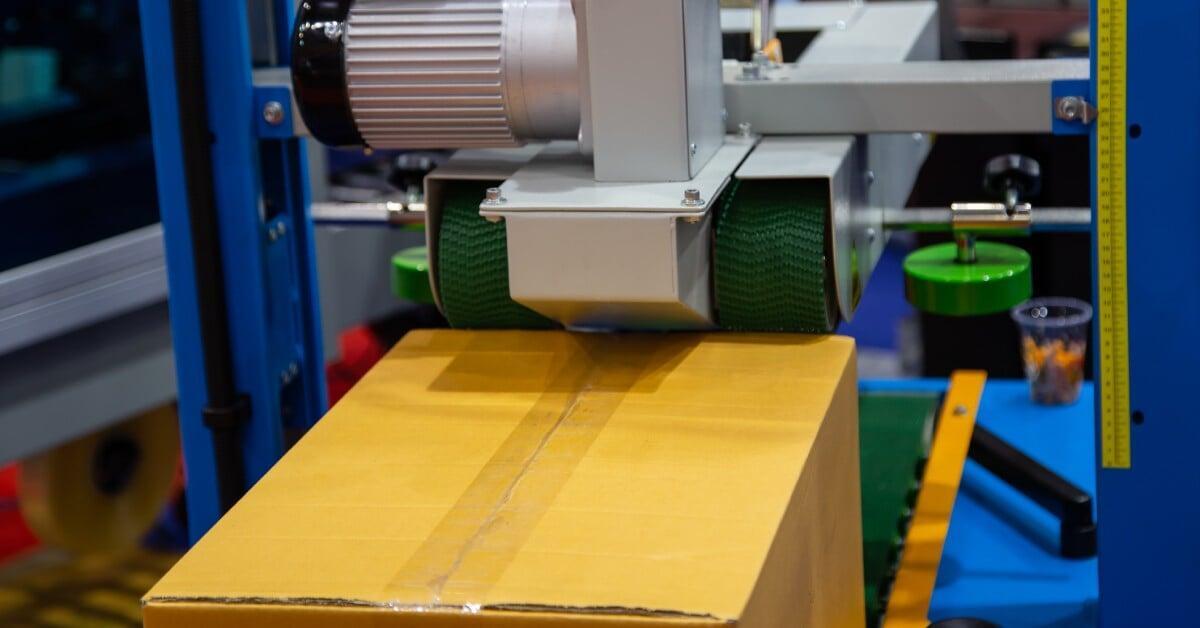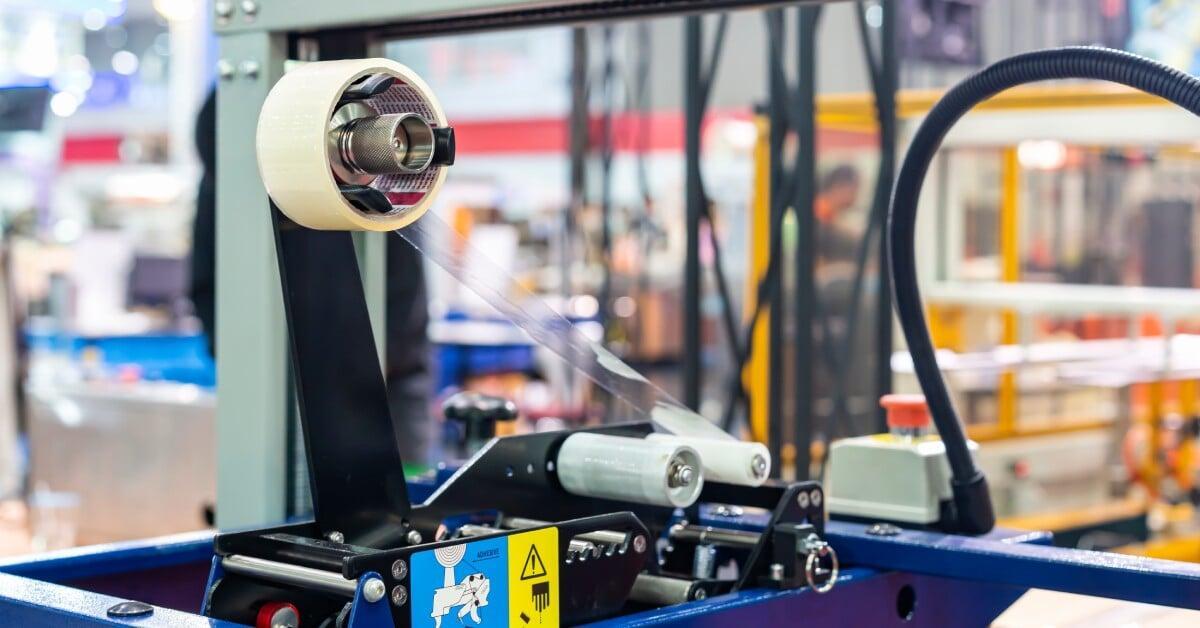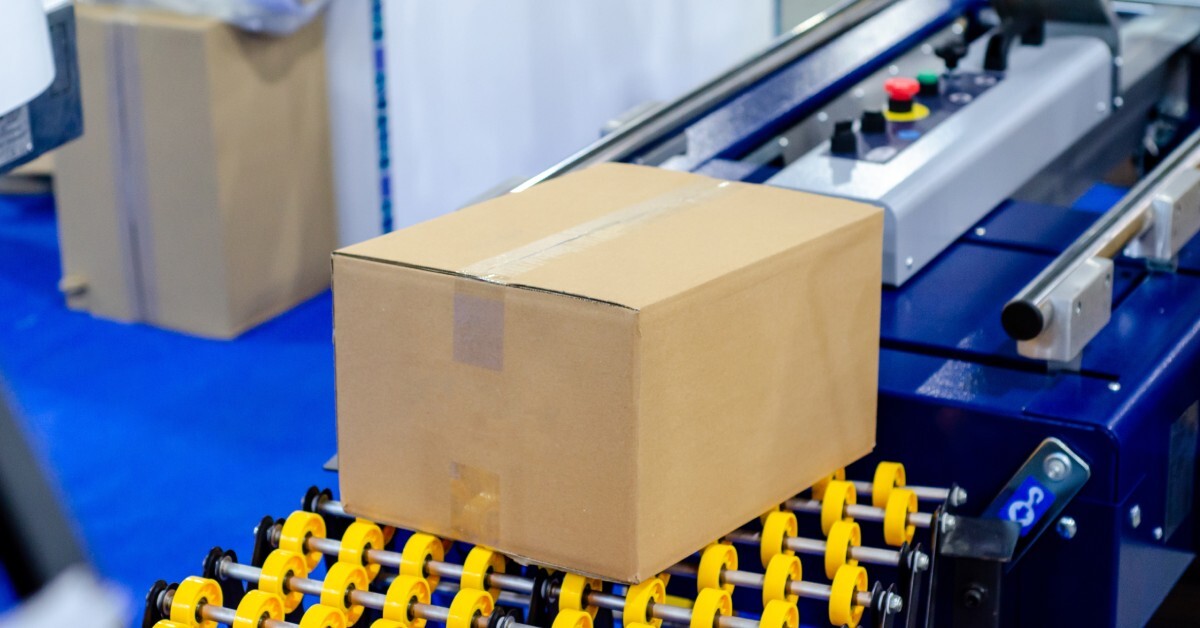
A high-quality carton sealer can speed up your packaging line by automating the process of closing boxes. With countless equipment options flooding the market, warehouse managers face the challenge of identifying which features truly matter for their operations. Luckily, understanding the top features to look for in a carton sealer will simplify your decision-making process.
This guide breaks down the essential features of case or carton sealers to help you compare different models. We'll explore everything from size adaptability to automation capabilities, helping you make an informed decision that will support your warehouse for years to come.
The Basics of Carton Sealer Operation
Case sealer machines automate the process of closing and securing cardboard boxes, which eliminates the need for manual taping or gluing. These machines handle the repetitive task of sealing cartons, allowing your team to focus on higher-value activities throughout the packaging process.
Investing in a reliable carton sealer delivers immediate benefits to your operation. These are the possible improvements you could see:
- Faster throughput
- Reduced injury and labor costs
- Improved seal consistency
- Minimized material waste of tape or adhesive
Carton Size Adaptability: Adjustable vs. Fixed Case Sealers
There are two general types of case sealers: adjustable case sealers and fixed case sealers. Your choice will determine how versatile your packaging line can be.
- Adjustable case sealers: These machines can accommodate multiple box dimensions, making them ideal for facilities that package diverse product ranges. These machines have guide rails and height adjusters that can adapt to different carton sizes, from small electronics packaging to large appliance boxes.
- Fixed case sealers: Fixed case sealers excel when you consistently seal identical box sizes. These machines optimize speed and efficiency for single-dimension operations, such as fulfillment centers that primarily ship books or warehouses handling uniform product lines. Fixed sealers often process boxes faster than adjustable models because they eliminate adjustment time between cartons.
Consider your product mix when choosing between these options. For example, e-commerce operations typically benefit from adjustable sealers due to varying order sizes, while manufacturing facilities with standardized packaging often prefer fixed models for their speed. Some operations run hybrid approaches, using fixed sealers for high-volume standard boxes and adjustable units for specialty items.
Sealing Method: Glue vs. Tape
The sealing method your carton sealer uses will affect your upfront costs and ongoing operational expenses.
- Tape-based carton sealers typically require lower initial investment, making them attractive for budget-conscious operations. These machines use pressure-sensitive tape that applies cleanly and provides reliable seals for most shipping conditions.
- Glue-based carton sealers demand higher initial costs due to their complex heating and application systems. However, adhesive materials often cost less per seal than tape, creating long-term savings for high-volume operations. Hot-melt glue creates strong bonds that perform well in extreme temperatures and humid conditions where tape might fail.

Speed and Throughput
The overall production demands of your operation will determine the sealing speed you’ll need from your carton sealing machine.
Throughput is measured in boxes per minute. For example, if an entry-level machine handles 12–15 boxes per minute, it could be a suitable choice for smaller operations or secondary packaging lines. Mid-range units that can process 20–30 boxes per minute could meet a major warehouse’s requirements without overwhelming operators.
High-speed sealers exceed 40 boxes per minute and are designed for facilities with aggressive throughput targets. These machines require careful integration with upstream and downstream equipment to avoid creating bottlenecks elsewhere in the packaging line.
Match your sealer speed to your actual needs rather than choosing the fastest available option.
User-Friendly Operating Interface
Intuitive controls on carton sealing machines reduce training time and minimize operator errors. Look for carton sealers with clear displays, simple adjustment mechanisms, and logical control layouts. Touch-screen interfaces allow operators to save settings for different box sizes, enabling quick changeovers without manual adjustments.
Consider your operators' technical comfort levels when evaluating interface complexity. Facilities with experienced packaging teams might benefit from advanced programming capabilities, while operations with frequent staff turnover need straightforward controls.
Some modern sealers offer preset programs for common box sizes to reduce setup time and ensure consistent results across shifts. Some units may even include diagnostic displays that help operators identify and resolve minor issues without calling maintenance teams.
Straightforward Maintenance
Maintenance complexity directly affects your operational uptime and labor costs. Choose carton sealers with accessible components, clear maintenance needs, and readily available replacement parts. Machines that require specialized tools or extensive disassembly for routine maintenance can create unnecessary downtime.
Quality case sealer equipment manufacturers often provide detailed maintenance documentation and responsive technical support. Evaluate the manufacturer's service network in your region, ensuring you can access parts and expertise when needed.
Also, consider maintenance frequency when comparing options. Some high-speed machines require daily attention, while robust mid-speed units might need service only weekly or monthly.
Built-in Safety Features
Operator safety protections prevent accidents and reduce liability exposure. Essential safety features include emergency stops and guards covering moving parts. These protections keep workers safe while maintaining productivity.
Look for machines with lockout/tagout capabilities that allow safe maintenance and cleaning procedures. Clear safety labeling and warning signals help operators understand potential hazards and proper operating procedures.
Some advanced units may even include safety interlocks that prevent operation unless all guards are properly positioned. These features provide valuable protection against serious injuries that could shut down your operation entirely.

Automation Capabilities: Semi-Automatic vs. Fully Automatic
Automation is another feature to consider when evaluating case sealers, as it determines how many staff members you’ll need to run the equipment.
- Semi-automatic machines require operators to position boxes and fold flaps before sealing. These units typically need one dedicated operator per machine.
- Fully automatic sealers handle box positioning, flap folding, and sealing without manual intervention. They can integrate with conveyor systems to process sealed boxes, which require minimal operator attention.
Evaluate automation benefits against your labor costs and production volumes. Facilities with expensive labor or high throughput requirements often justify automatic equipment costs through reduced staffing needs and improved consistency.
Machine Durability and Build Quality
Machine durability directly impacts your facility's output volume and long-term operational costs. Look for sealer machines with heavy-duty construction and quality components. These machines will be able to handle demanding production schedules without frequent breakdowns that disrupt workflow. Examine frame materials, motor specifications, and component quality when comparing options.
You should also consider your expected usage intensity when evaluating durability requirements. Single-shift operations might succeed with lighter-duty equipment, while 24/7 facilities need robust machines designed for continuous operation.
Investing in the Right Carton Sealer for Warehouse Success
Selecting the ideal carton sealer requires careful evaluation of your specific operational needs, from box size variety to production volumes. The top features to look for in a carton sealer can vary depending on your unique circumstances. That said, prioritizing reliability, safety, and operational compatibility will benefit all packaging lines.
Explore PackSmart’s collection of semi-automatic and automatic carton sealer equipment that can support your packaging operation. Contact us today for specific pricing details.
